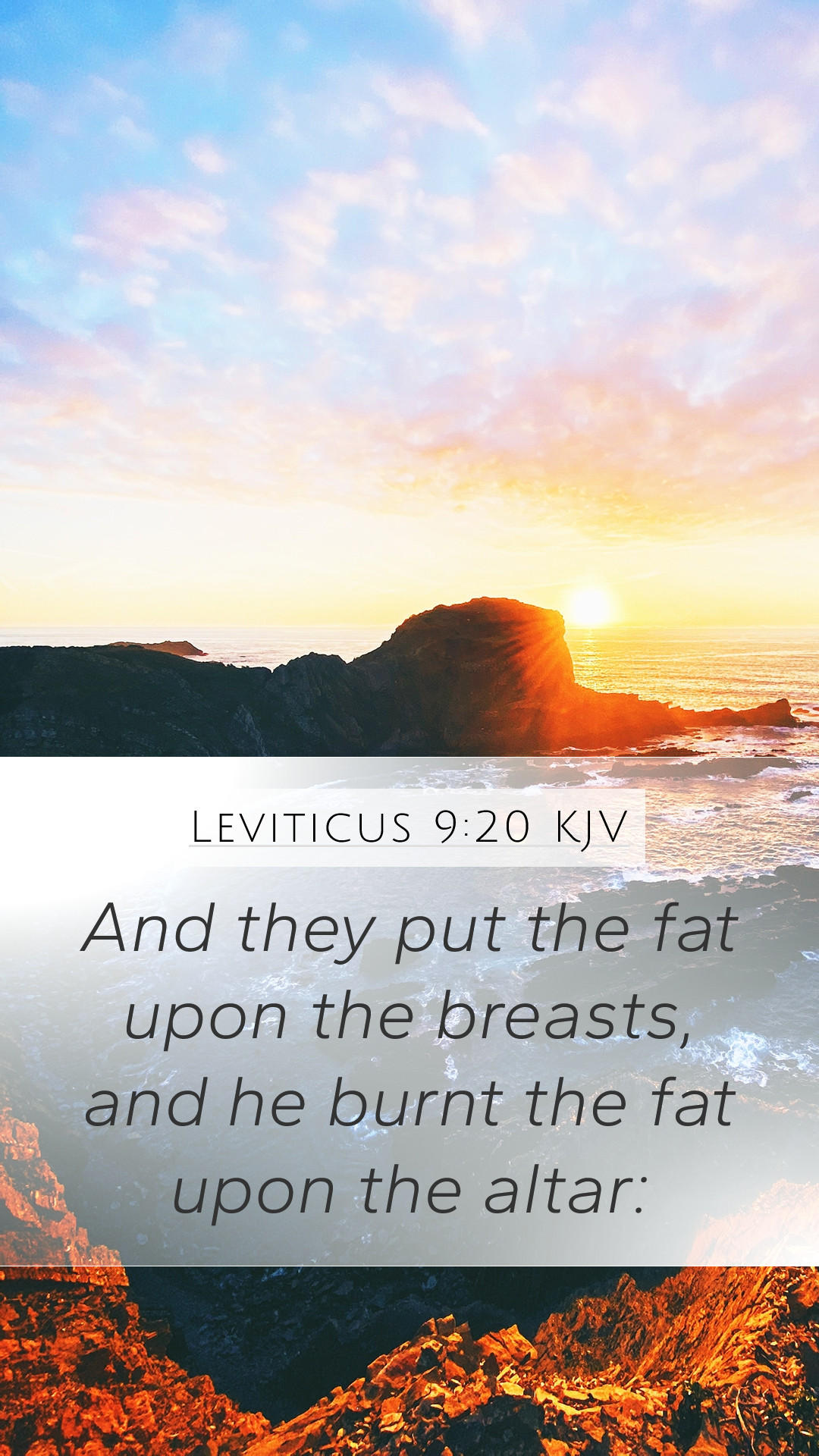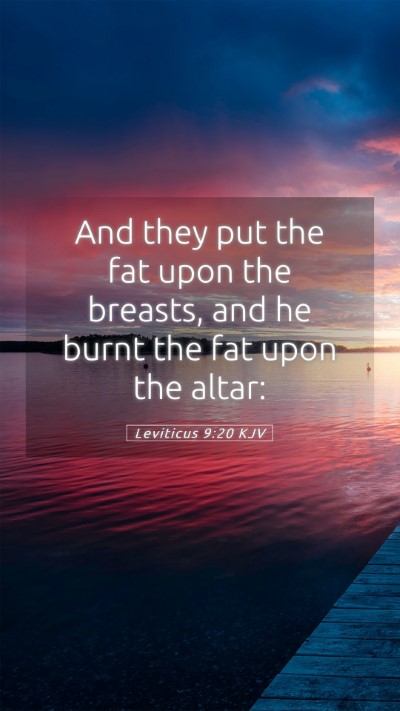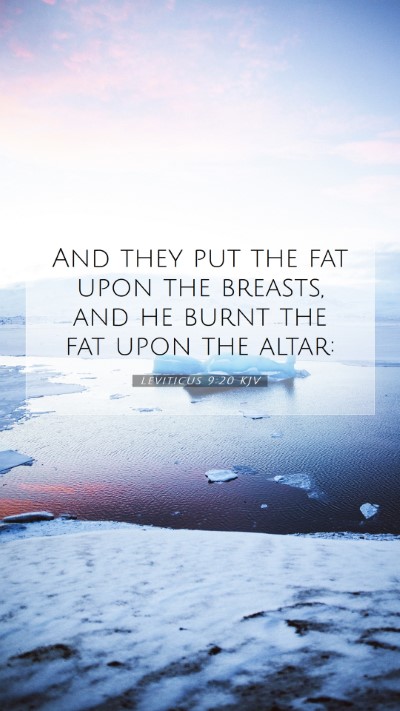Bible Verse Analysis: Leviticus 9:20
Verse: Leviticus 9:20 states, "And they laid the fat upon the breasts, and he burnt the fat upon the altar." This verse is part of the account of Aaron's first offerings as a priest.
Context and Setting
The book of Leviticus serves as a manual for the priests and the people of Israel on how to maintain holiness and proper worship to God. It outlines the sacrificial system which is crucial to the ancient Israelite worship practices. Leviticus 9 recounts the consecration of Aaron and his sons as priests and describes the initial offerings made to God.
Bible Verse Meanings
This verse holds a significant place within the broader context of the sacrificial laws outlined in Leviticus. The fat represents the best portions of the animal, which God commanded to be offered as part of the sacrifices, symbolizing the believers' devotion and the acceptance of their offering by God. Matthew Henry emphasizes that the offerings reflect the dedication of the priesthood to God, establishing a pattern for future worship.
Bible Verse Interpretations
- Matthew Henry's Commentary: Highlights the importance of the fat in sacrifices as the best part, symbolizing holiness and purity dedicated to God.
- Albert Barnes' Notes: Discusses how the act of laying the fat on the altar signifies that the offering is being set apart for the divine, and notes that this ritual was crucial in the inauguration of priestly service.
- Adam Clarke's Commentary: Explains that the burning of fat symbolizes the sweet-smelling aroma to God, indicating pleasure from the people's offering, thus reaffirming God's established covenant with Israel.
Understanding Scripture
Understanding Leviticus 9:20 requires examining the purpose of sacrificial practices in the context of Israel’s covenant with God. The laying of the fat was an essential part of making atonement, illustrating deeper themes of sacrifice, atonement, and holiness.
Scripture Analysis
In a broader theological context, this verse underscores the concept of offering oneself entirely to the Lord, as described by Paul in Romans 12:1, encouraging believers to present their bodies as living sacrifices.
In-Depth Bible Verse Analysis
The repetitive nature of the offerings in Leviticus emphasizes the necessity of regular atonement in ancient Israelite society. This was to maintain a right relationship with God and was significant for the communal identity of Israel as God's chosen people.
Significance of the Verse
Ultimately, Leviticus 9:20 signifies the movement from individual to communal worship practices, cementing the role of the priesthood in mediating between God and the people. This is vital for readers looking to understand not just the historical implications, but also the spiritual significance that resonates through to New Testament teachings on sacrifice and atonement.
Application of Leviticus 9:20 in Daily Life
For modern readers, the application of this verse might revolve around the themes of sacrifice, offering the best of ourselves to God, and committing to live a holy life that honors God in our everyday actions.
Related Bible Cross References
- Exodus 29:22 - Further instructions on offerings.
- Leviticus 1:8 - Additional regulations regarding sacrifices.
- Romans 12:1 - Calls for believers to be living sacrifices.
Bible Study Insights
For those engaging in Bible study groups or individuals partaking in online Bible study, these insights and interpretations can illuminate difficult passages and aid in understanding the overarching themes of sacrifice in the Scripture.
Bible Study Tools
Utilizing Bible study resources, guides, and tools can enhance your interpretation and understanding of such verses. Consider diving deeper into historical context and symbolism as part of your Bible study lessons.
Conclusion
Leviticus 9:20, while seemingly straightforward, opens doors to rich theological discussions concerning sacrifice, holiness, and community worship that are applicable in both ancient and contemporary contexts.


